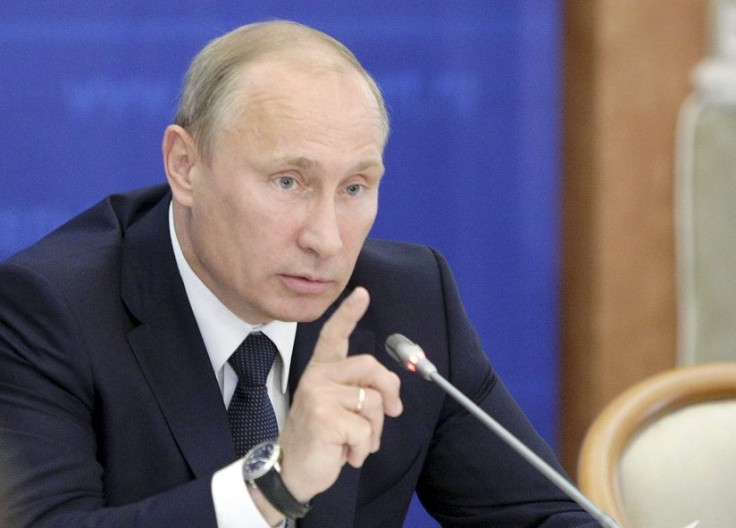Cyprus Banking Tax Angers Russia With Billions In Deposits At Stake

Russian account holders stand to lose a great deal of money should the government of Cyprus choose to move forward with a levy on bank deposits in order to secure a $13 billion bailout for its ailing banking sector.
Cypriot banks hold about $90.7 billion in deposits, nearly half of which belong to foreigners. The vast majority of these foreign deposits are believed to be from Russian individuals, banks and businesses that are drawn to the island nation’s low taxes, lax financial regulations and provision of discretion.
Now Cyprus’ banking system is on the verge of collapse, another casualty of the European debt crisis that has shaken the foundations of financial institutions throughout the euro zone over the past three years.
The European Central Bank has offered the Cypriot government a bailout package on the condition that it levies a one-time tax on the country’s bank deposits. A 10 percent tax on holdings over €100,000 ($129,470) has been proposed, while a 6.75-percent tax has been suggested for amounts below that threshold.
Cypriot ministers are preparing to sign off on the package Tuesday, angering Moscow, which has criticized the move that would tax billions in overseas assets of Russian companies and financial institutions.
Financial services giant Moody’s estimates that $12 billion to $32 billion of foreign bank deposits come from Russian banks with an additional $19 billion from Russian businesses.
Russian President Vladimir Putin described the proposed tax as “unfair, unprofessional and dangerous," and his prime minister, Dmitri Medvedev, said it amounted to “a confiscation of someone else's money,” the Guardian reported.
Finance Minister Anton Siluanov said European Union officials should have consulted his office on the conditions of the bailout and that it would affect Russia’s decision to restructure a $3.3 billion loan to Cyprus.
"We had an agreement with colleagues from the euro zone that we'd coordinate our actions," Siluanov told Reuters. "So, we will consider the issue of restructuring of the loan taking into account our participation in the coordinated actions with the European Union to help Cyprus."
Mikhail Delyagin, Director of the Institute of Globalization Studies in Russia, criticized Moscow for not anticipating the destabilization of the Cypriot banking system and said little could be done to avoid the tax.
"This only comes as a surprise to us and our government officials, some of whom ought to be indicted for lack of foresight,” Delyagin told Russian media outlet First News. “The rest of the world saw this coming. [...] Many representatives of Russia's political elite will lose money and there's nothing to be done about it.”
“Cyprus is essentially committing fiscal suicide," he added, remarking that the bailout measures would lead to an outflow of foreign capital from Cypriot banks.
The Cypriot banking system has also drawn criticism for its lack of transparency and is suspected of providing Russian criminal organizations with a means to launder money.
According to a report from the Center for International Policy’s Global Financial Integrity program, Cyprus sent $128.8 billion in foreign direct investment, or FDI, to Russia in 2011, while its own GDP was only one-fifth of that, which it said was proof that illicit capital from Russia was being laundered and sent back under the guise of investment.
“The recorded FDI positions merely reflect the round-tripping of prior illicit deposits from Russia into Cyprus,” the report said.
“Cyprus is a laundry machine for dirty Russian money,” said Dev Kar, one of the authors of the report and a former senior economist at the International Monetary Fund, in a statement.
© Copyright IBTimes 2025. All rights reserved.





















